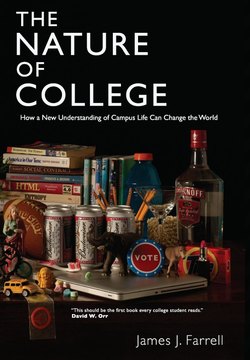Читать книгу The Nature of College - James J. Farrell - Страница 17
На сайте Литреса книга снята с продажи.
Past Time
ОглавлениеDespite their enrollment at an educational institution designed to pass on cultural traditions from the past to the future, Joe and Jo College are not generally good at thinking in time. Most of us, in fact, don’t remember—if we ever learned—the environmental history that would help us make sense of the present, so we don’t know why we act the way we do. We don’t understand why environmental problems have developed. We don’t know about environmental successes or histories of hope. Playing by the rules of American presentism, we don’t take time to think about the past—unless, of course, we’re stuck in a history course.6
Whether we acknowledge it or not, however, we live in history, and dead men rule our lives. We inhabit the institutions dead men created and the buildings they erected. We learn from books they wrote and ideas they devised. Daily, we use the technologies they invented—amusing ourselves among the ghosts of Thomas Edison, Henry Ford, and Philo Farnsworth. Most importantly, we live in the world that they developed, despoiled, or protected. When Columbus “discovered” America, he came in windpowered sailing ships, and encountered people who didn’t use fossil fuels. But we use lots of fossil fuels, because dead men later discovered coal and oil and exploited them to make our lives easier and more efficient. On the other hand, dead men and women also helped to create a sublime system of American national parks, and legislative protections for wilderness and the environment. The past is always alive in our present, but, because the clock calls us to our next appointment, we rush right past it.7
